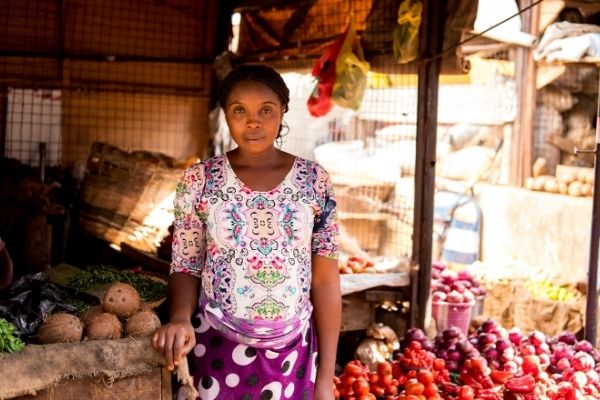Deadline: 23-Feb-2022
The Global Alliance for Improved Nutrition (GAIN) has announced the Formative Study for Improving Vegetable Consumption Program to design a 4-year project to improve vegetable consumption in low-income consumers living in urban and rural areas of the counties of Nyandarua, Machakos, Nairobi, Kiambu, Kitui, Nakuru, Makueni, Kilifi, Mombasa, Taita Taveta, and Kwale.
Objectives
The objectives of the research study are to:
- assess selected interventions for improving purchasing of vegetables and
- characterize vegetable consumption patterns (i.e., access, purchasing behaviours, consumption behaviours, and general perceptions and awareness of vegetables) among urban and rural low-income consumers in selected counties in Kenya.
Aims
The study aims to address the following questions:
- How would consumers change the quantity of vegetables purchased in response to interventions (e.g., increased awareness of portion sizes, improved quality, better safety/hygiene, including better farm practices and vendor handling practices, improving convenience at point of sale (chopped or washed products), lower time cost of acquisition, lower prices, or more information/better product positioning at point of sale (POS)?
- Characterize consumption patterns to inform project design by addressing:
- Purchasing behaviours of target population
- Who is the main responsible for buying vegetables?
- Where do they buy the vegetables?
- What are all the vegetables purchased by household in the last week?
- What is the usual amount of key vegetables (e.g., spinach, kale, tomatoes, cabbage) purchased during a regular shopping trip?
- How much did they pay for this purchase?
- How do they assess the quality of vegetables?
- What was the market price for vegetables that week?
- Consumption behaviours of target population
- How are vegetables prepared? What are the common dishes prepared with vegetables? What other ingredients are required to prepare them? What are common vegetables substitutes for these dishes? How easy/convenient are they to prepare? How frequently are they consumed? By whom? When? What are the usual portion sizes?
- How are vegetables stored?
- How much purchased vegetable is spoiled at home before it can be consumed?
- General perceptions and awareness of vegetables
- What are some common attitudes and beliefs related to vegetables? (health benefits, perceptions)
- Apart from cost, what are main barriers for eating more vegetables?
- Exposure to messages & Awareness
- What type of messages have they heard about vegetables?
- Are they aware of any recommendations on vegetable consumption, including the recommended portion sizes?
- Purchasing behaviours of target population
Tasks
In collaboration with GAIN, draft research protocol including data collection instruments. Provide recommendations to adapt to the local context.
- Translate data collection instruments to Kiswahili.
- Request ethical approval to local ethics committee.
- Prepare recruitment plan to ensure reaching the intended target audiences.
- Prepare training materials and brief data collection manual. In collaboration with GAIN, conduct training of recruiters and data collectors to ensure following high-quality data collection methods and safety protocols.
- Prepare and implement a quality control process to ensure quality of data collection.
- Prepare all preliminary activities needed to conduct field work activities such as requesting local permission for field work.
- Test data collection instruments with target group. Refine instruments and data collection procedures based on results.
- Conduct data collection according to established protocol and manuals.
- Prepare brief field work report describing field work activities and progress, findings from quality control process and corrective measures.
- Conduct all post-survey activities including preparing anonymized dataset ready for public distribution, codebook, and other accompanying resources (questionnaire) using Nesstar software. Prepare anonymized transcriptions (in English) of interviews and/or focus group discussions.
- Develop a Powerpoint presentation with preliminary results.
- Prepare final report.
- Participate in discussions with GAIN and partners regarding data analysis and interpretation.
Criteria
Interested applicants should prepare a brief proposal (maximum 5 pages) that includes:
- Description of research proposal with clear activities and process for conducting this service. This should include the type of research methods, justification for use, and sampling.
- Activities and timeline: A timeline for undertaking and completing the main activities, including planning, implementation, and reporting, should be provided. A Gantt diagram is preferred.
- Budget: Provide a budget in USD (US Dollar), broken down by main cost categories (Personnel, travel, operational, direct, and indirect costs) and by main activities. Include a brief narrative justification for line items included. The budget should be inclusive of all taxes/VAT and indirect costs.
- Detailed profiles (qualification, expertise, relevant experience etc.) of the individuals who will be completing the work including their full names, their expertise and publications in relevant research.
- A completed ‘Offer of Services’ form.
For more information, visit https://www.gainhealth.org/requests-for-proposals
